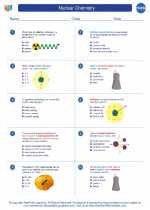Gametes
Gametes are specialized cells that are involved in sexual reproduction. In humans, gametes are the sperm cells in males and the egg cells in females. These cells are unique because they contain only half the number of chromosomes (haploid) found in somatic cells, which are cells that make up the body.
Formation of Gametes
Gametes are produced through a process called meiosis. Meiosis involves two sequential divisions of a diploid cell (one that contains a full set of chromosomes) to produce four haploid cells. In males, this process occurs in the testes, leading to the formation of four sperm cells from one diploid cell. In females, meiosis occurs in the ovaries, resulting in the production of one egg cell and three polar bodies, which are not involved in reproduction.
Characteristics of Gametes
- Haploid: Gametes contain a single set of chromosomes, which is essential for maintaining the diploid number when they combine during fertilization.
- Motility: Sperm cells are typically motile, allowing them to move and seek out the egg for fertilization.
- Nutrient-rich: Egg cells are larger and contain nutrient stores to support the early stages of embryonic development.
- Genetic Diversity: Gametes undergo a process called genetic recombination during meiosis, leading to genetic variation in offspring.
Role in Reproduction
Gametes are essential for sexual reproduction. During fertilization, a sperm cell combines with an egg cell to form a zygote, which contains the full complement of chromosomes. This zygote then undergoes cell division and development to eventually form a new organism.
Study Guide
When studying gametes, it's important to focus on the following key points:
- Understand the process of meiosis and how it leads to the formation of haploid gametes.
- Learn about the differences between sperm cells and egg cells in terms of structure and function.
- Explore the role of gametes in sexual reproduction and the formation of zygotes.
- Consider the importance of genetic diversity in offspring due to the recombination of genetic material in gametes.
[Gametes] Related Worksheets and Study Guides:
.◂Chemistry Worksheets and Study Guides High School. Nuclear Chemistry

 Worksheet/Answer key
Worksheet/Answer key
 Worksheet/Answer key
Worksheet/Answer key
